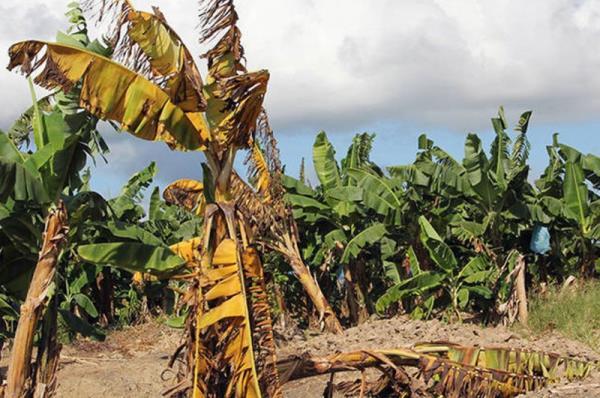Jaén and San Ignacio provinces (Peru) reinforce preventive actions against Fusarium R4T
Peru
Saturday 27 November 2021
VU
The biosecurity recommendations consist of washing feet at each point of entry to the property, applying exclusive tools for cultivation and avoiding the entry of outsiders, as well as vegetative material of unknown origin.
In order to protect the banana production of at least 6.000 families from Jaén and San Ignacio in Cajamarca, Peru, the National Agrarian Health Service (Senasa) reinforced preventive actions against Fusarium R4T, a devastating pest that led to the declaration phytosanitary emergency in the country.
With 4,522 hectares planted with bananas in San Ignacio and 1,553 in Jaén, these provinces concentrate most of the production of this crop in the region. That is why, since September, Senasa implemented prospecting, sampling plants with symptoms of said pest, training and biosafety recommendations.
Between Jaén and San Ignacio, each month 255 hectares of bananas and plantains are surveyed, 13 samples are collected and sent to the Diagnostic Center in Lima, and 4 trainings are carried out.
The biosecurity recommendations consist of washing feet at each point of entry to the property, applying exclusive tools for cultivation and avoiding the entry of outsiders, as well as vegetative material of unknown origin.
Fusarium oxysporum f.sp. Cubense Race 4 Tropical o Foc R4T, is a disease caused by a fungus that habitates the soil and forms resistance structures that allow it to live for over 30 years, which makes its management and control difficult. The fungus leads to plants death in a short time.
source: agraria.pe





